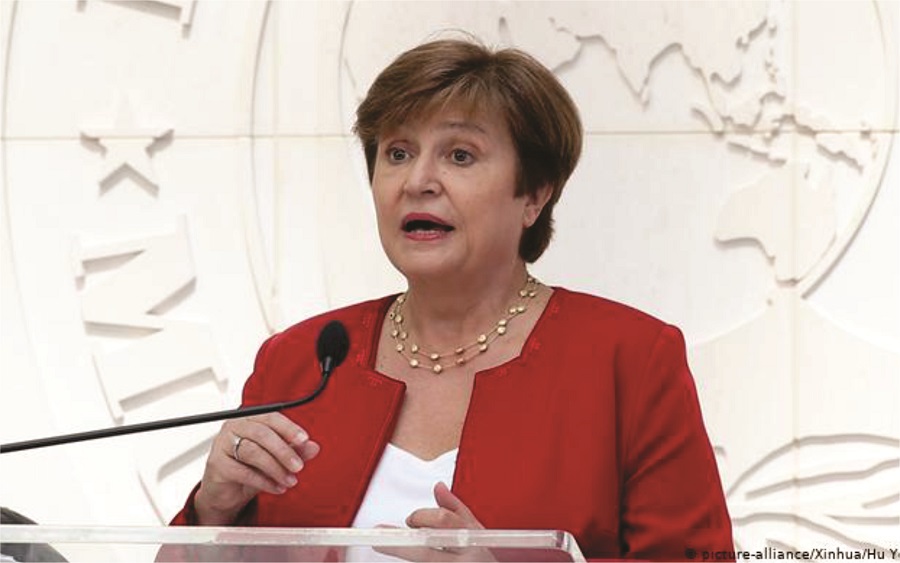The Managing Director of the International Monetary Fund (IMF), Kristalina Georgieva, said that developing economies need to focus on climate action strategies, to close the gaps presented by the risk of policy-driven geo-economics fragmentation.
She stated this in a blog post published Monday, January 16, where she highlighted the fact that emerging and developing economies are on the receiving end of reduced capital flows, a sharp decline in international cooperation.
She wrote that emerging and developing economies would no longer benefit from technology spillovers that have boosted productivity growth and living standards. She added that instead of catching up to advanced economies’ income levels, the developing world would fall further behind.
The recommendation: Given this reality, Georgieva recommended that the countries should focus on areas where cooperation is essential, and delay is not an option. Specifically, she advised that developing economies need to take decisive steps to address climate action.
According to her, this also means finding new ways to achieve common objectives through political will and financing. She said:
- “Collective action is just as vital to addressing the climate crisis. Just last year, we saw climate disasters on all five continents, with $165 billion in damages in the United States alone. It shows the massive economic and financial risks of unmitigated global warming.
- “But last year also brought some good news. The agreement at COP27 to set up a loss and damage fund for the most vulnerable countries shows that progress is possible with enough political will. Now we must take further pragmatic steps to cut emissions and curb fossil fuels.
- “One potential game-changer could be an international carbon price floor among major emitters. It would focus on carbon pricing or equivalent measures in an equitable process that would complement and reinforce the Paris Agreement. Or consider the ‘just energy transition partnerships’ between groups of donors and countries such as South Africa and Indonesia.”
Financing measures: Georgieva also pointed out the fact there is a need to step up climate finance to help vulnerable countries adapt. She suggested the innovative use of public balance sheets, such as credit guarantees, equity, and first-loss investments, which can help mobilize billions of dollars in private financing.
Data to the rescue: In a previous report, the IMF said achieving net zero means closing data deficits, highlighting the fact that those gaps need to be addressed to meet up with climate action goals.
The IMF noted that a data deficit poses a serious obstacle to the energy and ecological transition, which requires migrating capital toward low-carbon industries and massive new investments in mitigation and adaptation.
For the record: In October 2022, the President and Chief Executive Officer of the Africa Finance Corporation (AFC) said that Africa’s climate challenges put the continent’s gross domestic product (GDP) at risk by up to 35%.
According to him, the figure will keep growing as long as Africa lacks the infrastructure that is resilient to the impact of climate change.












